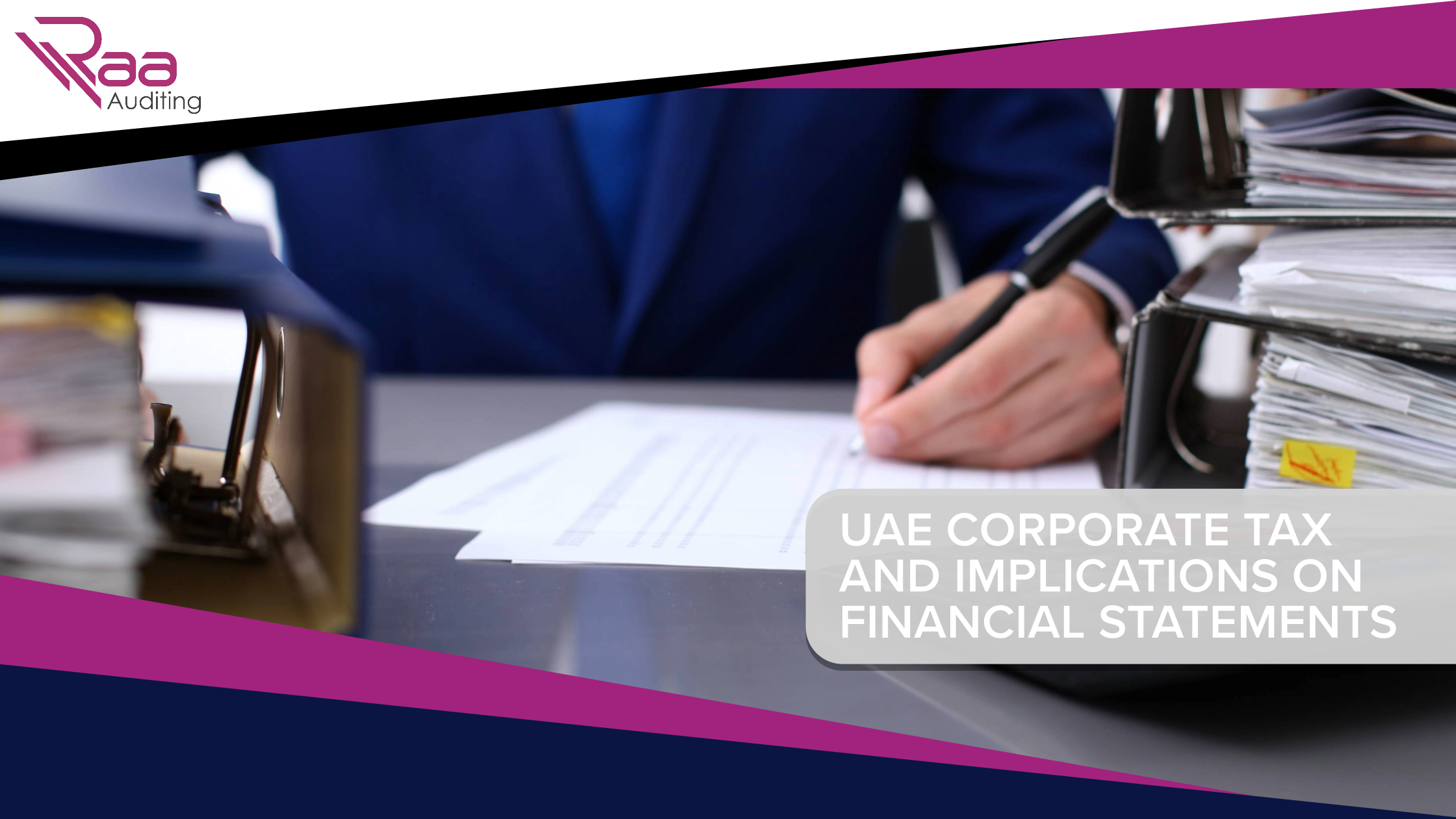- September 28, 2023
- Uncategorized
- Comments : 0
UAE Corporate tax and implications on financial statements
It is a mandatory requirement for all the UAE registered companies to maintain proper books of account. Each jurisdiction emphasizes financial transparency and accountability through its financial reporting requirements, including UAE Commercial Law which mandates all companies to maintain proper books of accounts and undergo an external audit annually, irrespective of their size and structure, by a UAE registered audit firm.
Introduction of corporate tax in UAE has significant implications for a company’s financial statements. Corporate tax will affect the key financial statements including income statement, balance sheet, and cash flow statement in various ways.
Below are some of the ways that corporate tax can influence the financial statements.
1. Income Statement:
The income statement shows a company’s financial performance for a specific period. The key elements of income statement include revenues, expenses, and net income. The major impact of corporate tax on income statement is through the calculation of corporation tax expense. Corporation tax expense includes the taxes a company owes to the government, based on its taxable income during a tax year. Corporate tax is calculated as per the application tax rate of 9% in accordance with the UAE Corporate Tax Law (Federal Decree-Law No. (47) of 2022 on the Taxation of Corporations and Businesses.)
2. Balance Sheet:
Corporate taxes can affect the balance sheet of a company in two major ways:
Deferred Tax Liabilities and Assets: Deferred tax is calculated by taking differences between accounting rules and tax regulations and this leads to temporary differences between the financial statement amounts and the tax amounts for some items. There are two possible outcomes of these differences; a deferred tax liabilities (where taxable income exceeds accounting income) or a deferred tax assets (where accounting income exceeds taxable income). As a result of these temporary differences, there would be potential future tax consequences which will be recorded on the balance sheet of the company.
Current Tax Liabilities: The taxes a company owes to the federal government for the current financial year are booked as current tax liabilities in the balance sheet of the company.
3. Cash Flow Statement:
Corporate taxes can have a direct impact on a company’s cash flow in the following possible ways.
Operating Activities: Corporate taxes paid should be reported in the operating activities section of the cash flow statement. These payments normally include payments for both current and deferred taxes of the company.
Financing Activities: Any tax refunds received from overpayment of previous taxes should be reported as inflows in the financing activities section.
Effective Tax Rate vs. Statutory Tax Rate:
A further important topic related to financial reporting is the effective tax rate. The effective tax rate is the actual rate a business pays on its taxable income, considering various deductions, credits, and other taxation related elements. However, the statutory tax rate is the rate established by the federal tax authority.
Possible impact of corporate tax on financial statements
High tax expenses can reduce a company’s net income, affecting its profitability and potentially retain earnings, which has a direct impact on Owner’s equity.
Deferred tax assets can signal that a business might have future tax benefits. On the other hand, deferred tax liabilities may highlight potential future tax payments.
It’s important to note that tax laws are normally complicated, and accounting for taxes can be complex. Businesses normally work with tax experts and accountants to ensure accurate reporting and compliance with tax regulations to compliant with the prevailing corporate tax law.
Who We Are?
RAA is a leading UAE audit firm with a strong presence in the Middle East business community and is well known for its quality service delivery. We strive to provide not just audit, but proactive advice on how to improve your business.
With our unique approach, we have the requisite expertise and experience to help our clients grow and develop. Through our technical excellence, combined with our personal commitment, we deliver high-quality services to large corporate clients and SMEs alike. We are also fully aware of the prime importance of providing the highest quality independent auditing for our clients.
Author

Asif Mahmood
Associate Director – Audit




